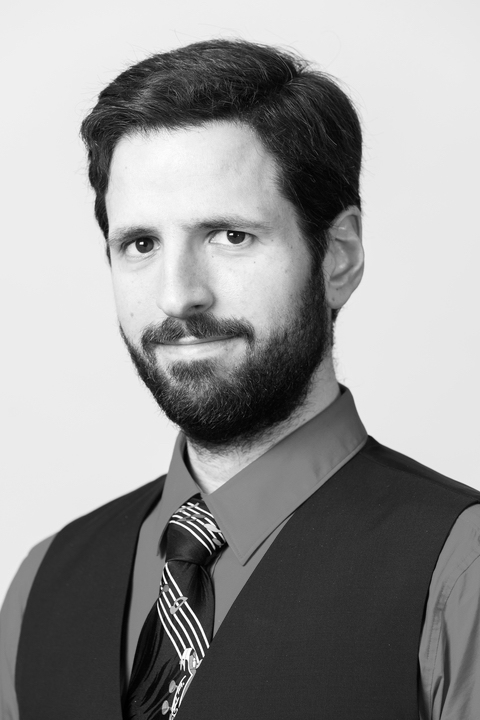In this episode, Michael Merlin, a lecturer within the School of Engineering, and Richard Blythe, a professor of Complex Systems in the School of Physics and Astronomy, share good practice by discussing their nominations for the 2022 Personal Tutor of the Year. This is the first episode of our Teaching Awards series, which features reflective conversations between nominees.
The first in the UK to offer student-led Teaching Awards, Edinburgh University Students’ Association is now in its 13th year of celebrating staff through the process. This year, over 2,680 nominations were made, with winners to be announced on May 25th. Read more about this year’s Teaching Awards with Natalie Hay’s introductory blog post.
This episode features Richard and Michael reflecting on their roles as personal tutors, particularly considering the always-changing circumstances of the past two years. They begin by discussing: what actually is the role of a personal tutor? Michael mentions it being both “everything and nothing”, while Richard touches on how he views the supportive role.
University is a time, I think, where people start to understand more about themselves, the kind of people that they are and what they want to do. I try and do what I can to help people achieve that. When I was a student, something that I felt about the University is that it is a place where if you really want something to happen, you can make it happen. And (my role) with some of my tutees is to get them to understand that a bit more and to start thinking, “hey, I could do this thing.” I could help you do that, because I know that you can go to these people, talk to them, apply for this thing, do that thing, and guide them in the direction that they want to go.
Richard Blythe
The two then go on to discuss how their roles have changed over the last few years. They discuss how with online learning, students were unable to access more informal channels of communication – such as asking the student seated next to them in a lecture when an assignment is due. Given this, Michael contends that the role of personal tutor has been more proactive than in past years, particularly in regard to sharing information, signposting and reassuring.
The personal tutor was so important because we have to be proactive as opposed to responsive. We have to be proactive into reaching out to students like: yes, okay, you should know at least that if you need search and support, if you’re not feeling well, that’s perfectly fine. I will personally help you, virtually at least, to get some counseling or to get in touch with the advice place. I know the academic looks scary by the fact that everything is communicated by email, but it’s actually fine. It’s okay. You can ask a question later and come back. That’s where our role has grown tremendously over the last few years, because we are providing all that usually uncommunicated information. We had to do that actively. So that’s essentially a big change.
Michael Merlin
Michael and Richard discuss more about the personal tutor role, including its relationship with mentoring and how it interacts with their research and teaching, before finishing by sharing their responses to being nominated. Throughout the episode, the thought and intentionality Michael and Richard bring to their roles are apparent, making this episode a must-listen for anyone interested in hearing about supportive roles, particularly within academia.
Listen Now:
Transcript:
|
 Michael Merlin
Michael Merlin
Dr Michael M.C. Merlin has been a lecturer at the School of Engineering in the University of Edinburgh since 2017, teaching and researching on power engineering, after getting his PhD at Imperial College in 2013. Michael works within the Institute for Energy Systems to study and improve power conversion systems for renewable energy, transmission and distribution applications, and he is also the director of the MSc Electrical Power Engineering programme.
Richard Blythe
Professor Richard Blythe holds a Personal Chair of Complex Systems in the School of Physics and Astronomy. In his research he aims to understand the statistical properties of complex interacting systems that are driven out of equilibrium. Applications include the clustering of swimming bacteria and the spread of social behaviour through a population. Having experimented with a variety of teaching and assessment methodologies in his undergraduate classes, Richard co-founded the Experienced Teacher Network to exchange these experiences (good and bad) and generate new thinking in university teaching.
Series produced and edited by:
 ERIC BERGER
ERIC BERGER
Eric is a Mathematics and Statistics student at The University of Edinburgh, and a podcasting intern for Teaching Matters. Eric is passionate about university student mental health, interviewing researchers for the Student Mental Health Research Network at King’s College London, leading the University of Edinburgh’s WellComm Kings Peer Support Scheme, and conducting research on stigma for People With Mental Illnesses (PWMI). In his free time, he enjoys watching and playing sports, over-analysing hip-hop songs, podcasts, and any sort of wholesome shenanigans.




